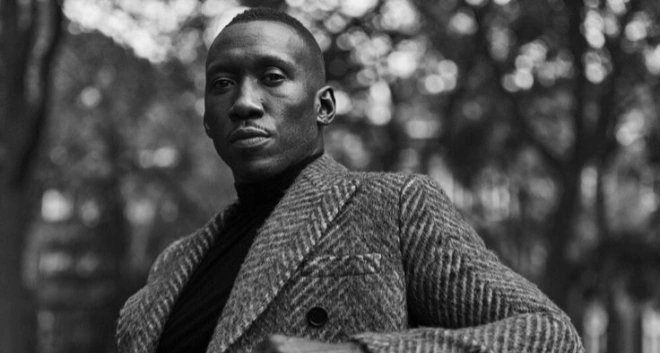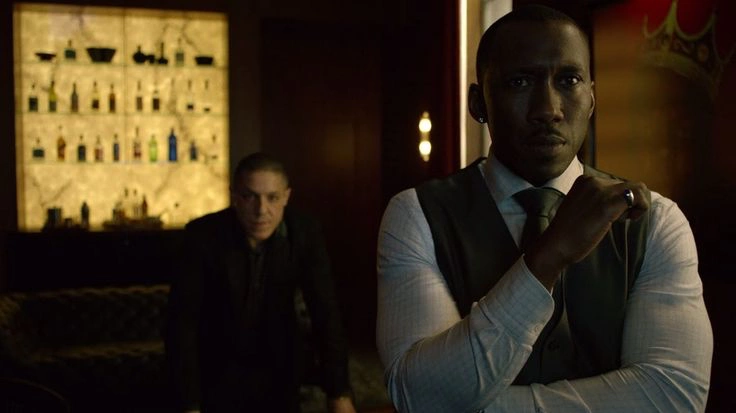Mahershala Ali — Commissioner Durand in Crossing Lines
Mahershala Ali returns to the small screen in Crossing Lines, a crime thriller that moves across national borders — and moral ones. His character, Etienne Durand, is a high-ranking commissioner investigating transnational crimes that blur every sense of jurisdiction — human trafficking, murder, corruption.
But Durand isn’t just an officer — he’s a man with a past. His face carries the weight of everything he’s seen and everything he’s done. He looks at both victims and criminals not with judgment, but with the weary eyes of someone who understands that right and wrong are rarely clean lines.
Each case brings him closer not just to answers, but to inner reckoning. He knows the law doesn’t always lead to justice, and sometimes stopping evil means compromising with it. His journey is less about evidence and more about identity.
Ali’s performance is restrained and powerful. His Durand doesn’t shout; he listens. He doesn’t break down; he bends under pressure, silently and intensely. This is no glossy detective story — it’s a portrait of a man walking the tightrope between justice and survival.
Crossing Lines offers no easy resolution. It pulls viewers into a world where truth is elusive and morality is messy. At its center is Ali, not as a hero, but as a man doing his best not to be lost in the darkness he walks through.

Set against the haunting backdrop of Europe’s political undercurrents and shadowy power structures, Crossing Linesdelves into the uncomfortable spaces where justice systems fail and borders become irrelevant. The series eschews traditional procedural tropes in favor of a slow-burning, character-driven narrative where each case peels back another layer of systemic rot — and of Etienne Durand himself.
The show’s structure is unique: each season centers on a major investigation, but within that arc are self-contained episodes that explore the human stories behind the crimes. A missing refugee girl in Hungary leads to a black-market organ ring operating through diplomatic channels. A double homicide in a Paris hotel uncovers a trafficking network funded by legitimate international foundations. These aren’t random crimes — they’re symptoms of a much larger illness.
Durand is partnered with a multi-national task force, but it’s no idealistic melting pot. His team — a German cybercrime analyst haunted by her own hacking past, a British ex-undercover cop rebuilding his life, a young Italian interpreter with ties to organized crime — bring their own ghosts, biases, and moral contradictions. The tension within the group mirrors the chaos of the world they’re trying to protect, forcing them to question not just how far they’re willing to go, but what it’s even for.
As political pressure mounts, Durand’s decisions grow murkier. Intelligence agencies with their own agendas, local police eager to pass responsibility, and bureaucrats who prefer silence over scandal — all contribute to a web of obstruction. Durand must navigate not just crime scenes, but diplomatic meetings, coded threats, and moments where the law becomes irrelevant in the face of power.
What makes Crossing Lines stand out isn’t the thrill of the chase, but the weight of the aftermath. The victims aren’t forgotten once the case closes — their stories echo through Durand’s conscience, complicating each step forward. Sometimes the perpetrator walks free, other times the arrest brings no closure. The question becomes not “Did we win?” but “Was this the best we could do?”
Visually, the series leans into natural lighting, muted palettes, and tight framing. Cities feel claustrophobic; nighttime scenes blur the line between safety and danger. The camera lingers on Durand’s silences, on glances between characters, on small, human choices that say more than words ever could.
The writing is rich with subtext — political, psychological, and emotional. Conversations unfold in layered exchanges, often with more meaning left unsaid. Flashbacks are rare but precise, giving just enough to hint at Durand’s haunted past without reducing him to a cliché.
More than anything, Crossing Lines is a meditation on compromise. It asks hard questions about what we sacrifice to protect others, and whether justice means more than simply enforcing rules. Etienne Durand is no savior — he’s a witness to a world unraveling at the seams, trying to hold something together with frayed conviction and quiet humanity.
In a landscape full of fast-paced thrillers and binary moralities, Crossing Lines slows down, looks inward, and offers something far rarer: a story that respects its audience’s intelligence, and a lead character who earns empathy not through perfection, but through persistence.

Close